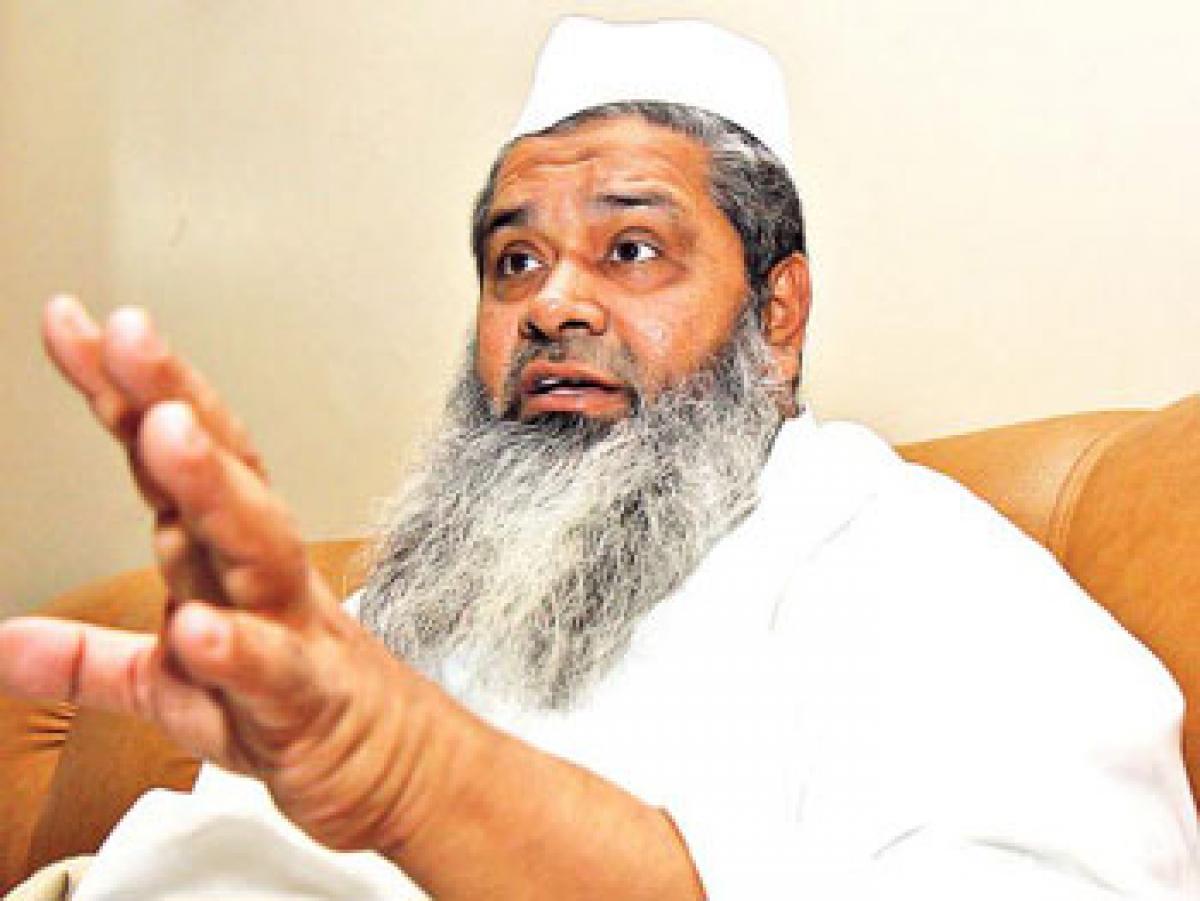King-maker or spoiler in Assam politics?

Assam Chief Minister Tarun Gogoi is now perhaps ruing his earlier brash comment when, in an apparent mood of disdain and haughtiness, he had asked \"Who is Badruddin Ajmal?\" The target was the president of the All India United Democratic Front (AIUDF).
Assam Chief Minister Tarun Gogoi is now perhaps ruing his earlier brash comment when, in an apparent mood of disdain and haughtiness, he had asked "Who is Badruddin Ajmal?" The target was the president of the All India United Democratic Front (AIUDF). Now, on the eve of the assembly elections on April 4 and 11, not only Gogoi and the Congress but the Bharatiya Janata Party (BJP) too is wary about the likely impressive performance of the AIUDF.
Badruddin and his brother Sirajuddin, the two leading lights of the AIUDF, are sure that no one can form the next government in Assam without their support. Badruddin thinks that his party may bag 30-35 seats in the 126-member assembly. Two factors are now working towards polarising the votes of the Bengali-speaking Muslims in favour of the AIUDF.
The first is the all-out effort that the BJP and the RSS are putting forth for winning the elections. The second is the Congress' refusal to agree to the AIUDF's call for a Bihar like grand alliance for defeating the BJP. That the Ajmal brothers have ultimately decided to contest a larger number of seats - from the initially contemplated 60 to 76 - is a direct fallout of the Congress' decision to contest alone.
The Congress is, no doubt, in the midst of a dilemma. It does not want to lose Hindu votes by striking an alliance with the AIUDF as the Hindus still constitute a little more than 65 per cent of Assam's population. But the party's voter base overwhelmingly consists of Bangladeshi immigrants and Muslims. The recent trend among the Bengali speaking Muslims of the state for tilting towards the AIUDF may cost the Congress dearly.
Badruddin is not just a political leader but also a 'holy man' who can work miracles. He has earned the equivalent of a masters in Arabic language and theology from the Darul Uloom Deoband Islamic School. His family owns almost the whole of the Hojai town in Nowgaon district. He has the largest agar plantation in India and runs a Rs 2,000 crore perfume business.
He runs the Haji Abdul Majid Memorial Hospital, Asia's largest rural charitable hospital and also owns what is arguably Asia's richest NGO - Markaaj-ul-Maaris. That such a man can easily match the financial powers of mainstream political parties is beyond doubt. But he has also been helped by the changing demographic character of Assam. While Muslims constituted 30.9 per cent of the population in 2001, their share jumped to 34.2 per cent in 2011.
In 2001, only six districts had a Muslim majority. In 2011, Muslims constituted the majority in nine districts. AIUDF has spread its tentacles far and wide in Assam. In the 2009 Lok Sabha polls, its only success was in the Dhubri constituency but in 2014 it bagged three Lok Sabha seats - Dhubri, Barpeta and Karimgunj. In the 2006 assembly elections, the AIUDF won 10 seats but in the assembly poll of 2011 the figure jumped to 18. Similarly, in the 2011 assembly polls, the AIUDF's vote share was 12.6 per cent, increasing to 15 per cent in 2014.
In the 2014 parliamentary elections, the AIUDF had established comfortable leads in 24 assembly constituencies. If this trend continues, then Badruddin's prediction of 30-35 seats in 2016 may come true. There are, however, some impediments before him. His influence is mainly confined to lower Assam and the Barak Valley.
In upper Assam, which has the largest concentration of seats, Badruddin faces opposition from the Assamese speaking Muslims. This has perhaps tempered his ambitions to some extent. But, after the elections, Badruddin may come out as a balancing factor - a kingmaker for some or a spoiler for sundry others' ambitions.














